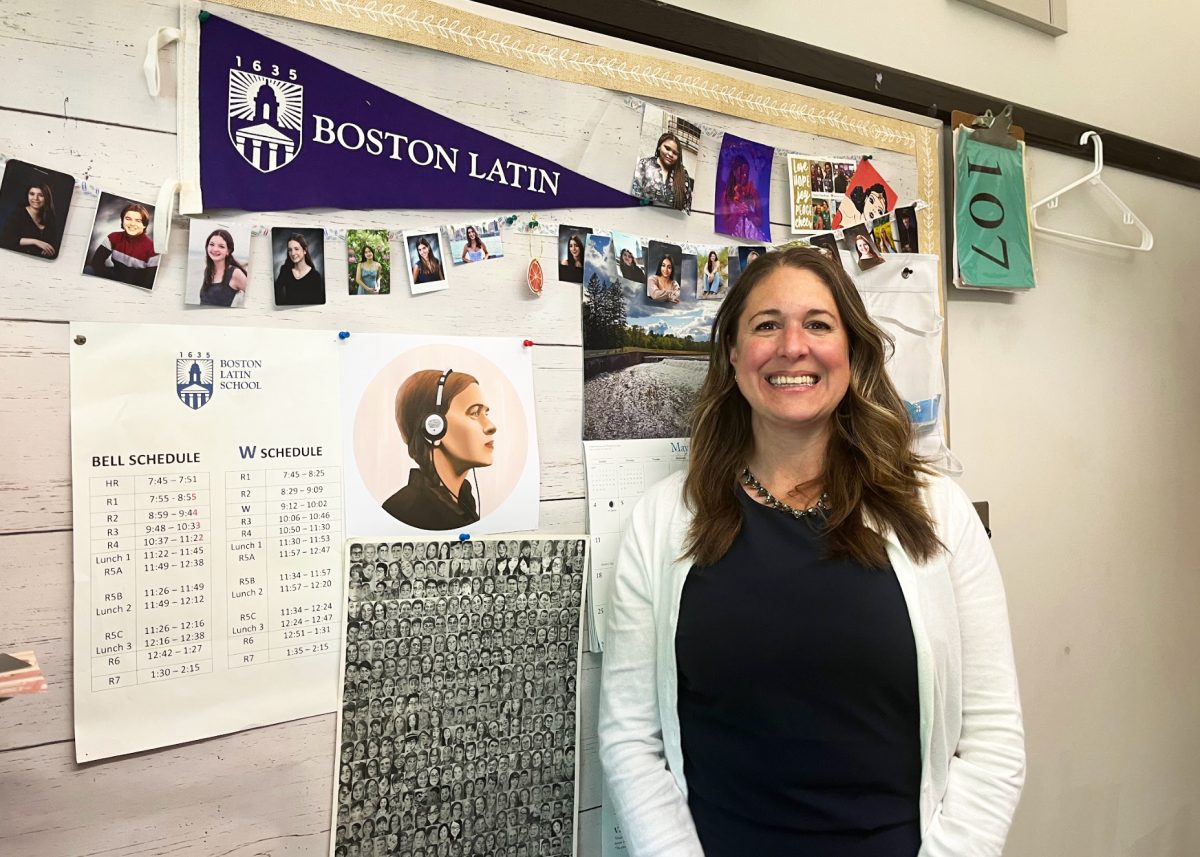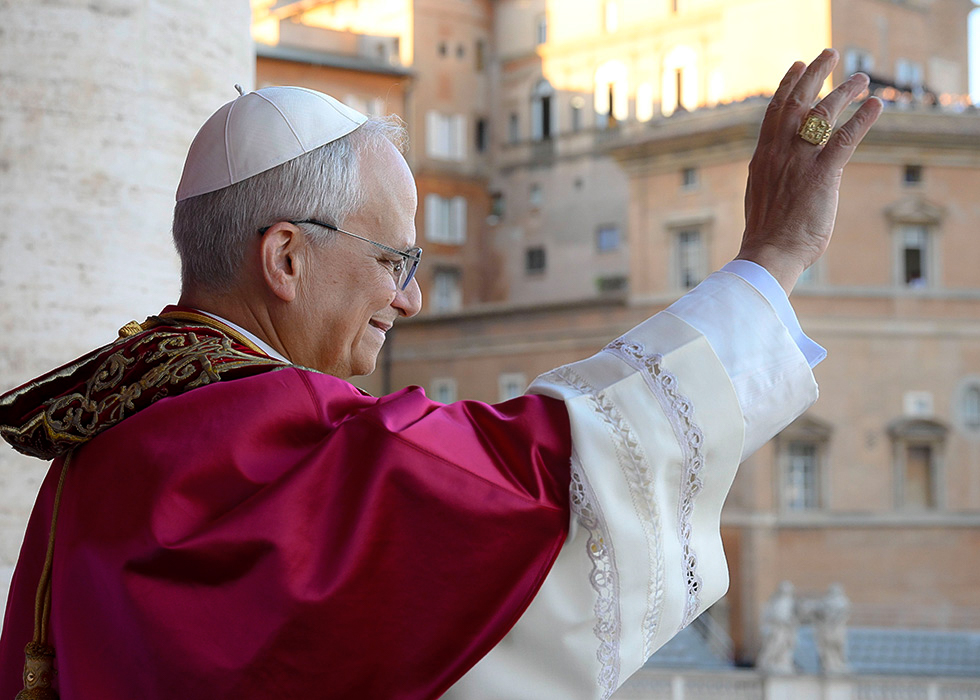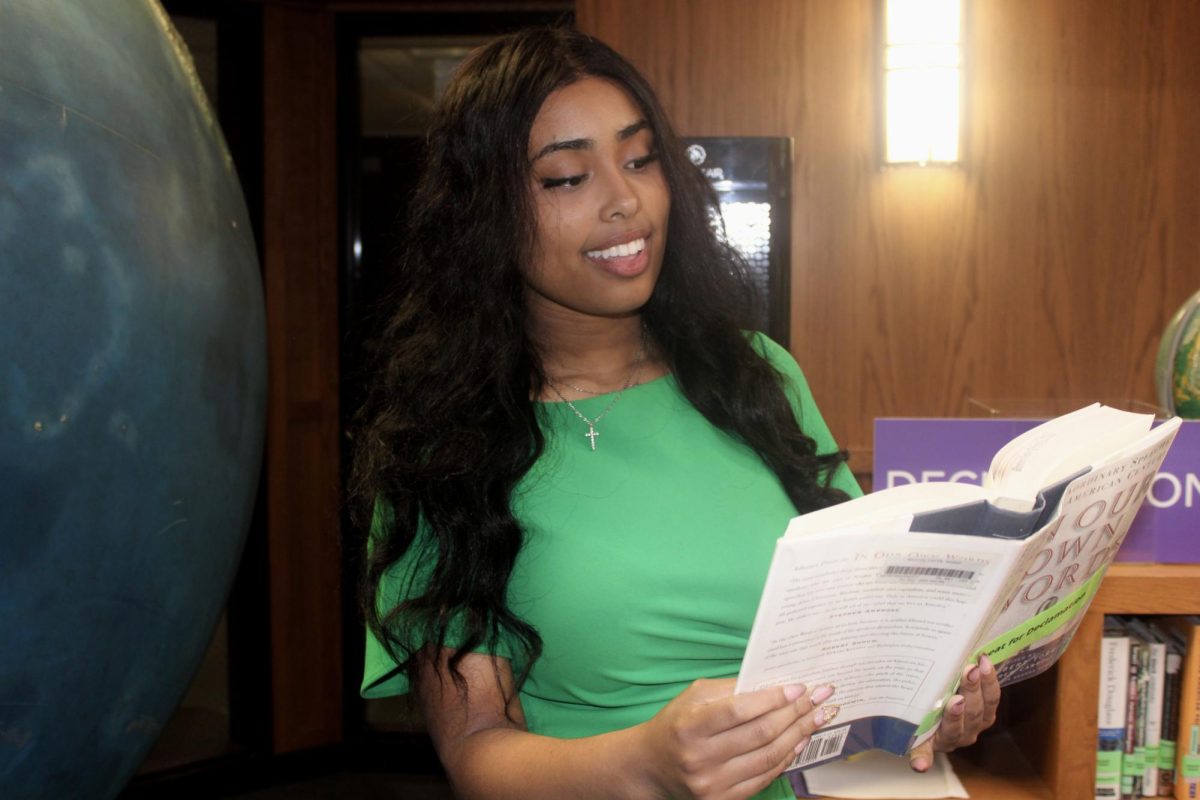BLS DECA
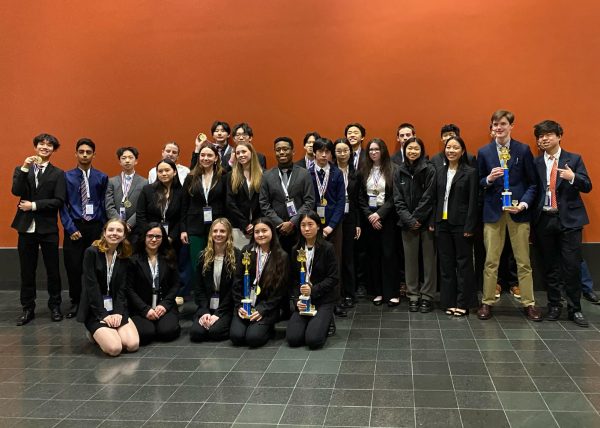
On March 8, 33 BLS students competed in the Distributive Education Clubs of America (DECA) State Competition, where several showcased their business acumen and qualified for the national competition.
DECA is a non-profit organization with 215,000 students around the world. Its mission is to “prepare emerging leaders and entrepreneurs in marketing, finance, hospitality.”
BLS DECA faculty advisor Mr. Jim Levesque remarks, “DECA is important because it is less of a traditional classroom and more of a learning lab. Students have ownership in the topic they choose, [and] they compete in a professional environment in which they look, act and perform like business people. It is a taste of the real world.”
Students first selected a business topic of interest. Then, depending on the event they chose, they took exams, submitted papers or gave presentations. In December, students first competed in a regional competition in Westborough. Those who won awards were eligible to move onto the state level, where the competition was even fiercer.
The top state champions of their respective categories are eligible to move on. At BLS, Andrew Lai (II), Steven Miall (II), Roan Wilcox (II), Rahul Bansal (III), Mary Deng (III) and Sophia Fortuin (IV) qualified for the national competition in April in Anaheim, California.
Bansal participated in Business Finance Series, which combines both business ethics and finance. He completed an exam before the state conference and performed two roleplays in-person. Concerning the national competition, he says, “I look forward to competing on a national stage and being in the presence of other national-level […] competitors.”
BLSJCL
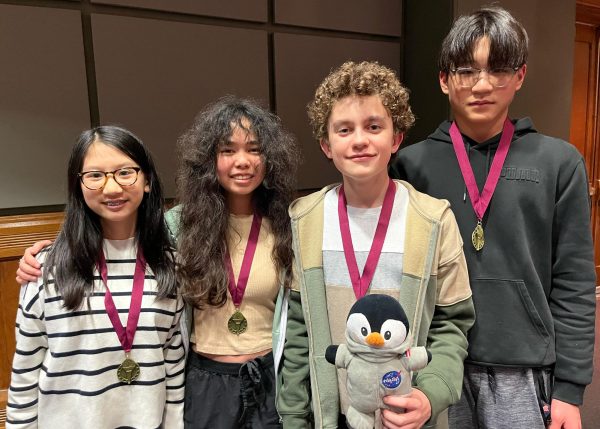
On March 23, Boston Latin School Junior Classical League (JCL) attended the Harvard Certamen Tournament and won multiple accolades.
BLS JCL is a club that participates inevents revolving around the classics, and has Certamen teams for the Novice, Intermediate and Advanced levels, which compete on both regional and national levels. Certamen is a trivia-like competition on topics such as Latin, Roman history and mythology.
At this national-level tournament, all BLS teams moved onto the finals: the Novice A and B teams won first and third places, respectively, while the Intermediate and Advanced teams placed third and second place, respectively.
JCL co-consul and Advanced player Joseph Hemr (III) comments, “I feel very happy with the results. […] This is the last major college tournament before states and nationals, and, given how well we did, it’s a good sign.”
During practices, the coaches provided study materials such as syllabi and worksheets, so students could build a greater base for their topic of expertise. BLS Latin teacher Ms. Elizabeth Moguel, the Novice coach, loves to see the students grow while bonding over their interests and competitiveness. She says, “I think the friendships and experiences that they get from competing, traveling, even just learning how to be part of a team is probably the biggest [value] for me.”
Looking ahead, state convention will take place in late April, where schools from across Massachusetts will compete in many activities, including Certamen, sporting events and art contests. Later on, selected Certamen players will compete at nationals after preparing throughout the summer.
BLS Mock Trial
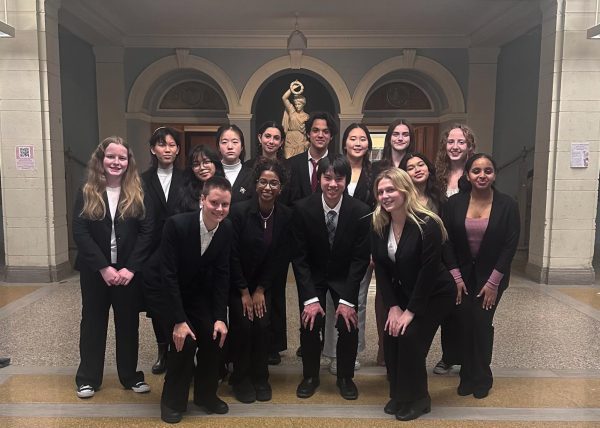
In early March, BLS Mock Trial competed in Moot Court at the San Diego Online Tournament.
Moot Court is an event that simulates argumentation before the Supreme Court, and students present their cases directly to judges. This event is the second half of the mock trial season at BLS. Co-captain Emily Yu (II) shares, “It’s much more conversational, and we like it a lot for that because you get to argue much more hands on with the legal principles.”
At the tournament, Michelle Chen (II) and Yu won top speaker awards, and the team with Amirah Redwing (I) and Ruth Gelaye (III) were quarterfinalists, with both teams qualifying for nationals. Students prepared by reading over their case packets and briefs ,which consisted of prior cases from the Supreme Court and lower courts. Supplemental cases, which are real-life incidents, also helped students gain more knowledge.
Moot Court allows for members to do more individual and partnership work compared to collaborating as a whole team. In addition to bonding within the BLS team, tournaments bring different schools together. Yu says, “Knowing that someone who lives thousands of miles away from you is prepping the same case and passionate about the same subject […] is super interesting.”
BLS Mock Trial also participated in the Yale University Tournament and nationals. Since Yale is the last regional tournament, they used it to train more teams to qualify for Nationals. Yu explains, “For future competitions, we’re really looking for more understanding [of] the basics of arguments.”




